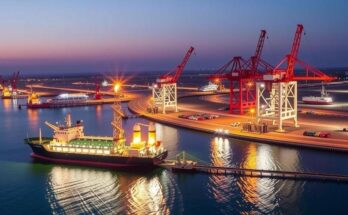Iranian missile strikes on Israel have escalated tensions, prompting analysis of potential Israeli responses that might reshape Middle Eastern politics. Experts warn of the risks associated with further military escalation, while Netanyahu’s recent surge in popularity may drive a bolder military strategy against Iran. The outcome of these confrontations holds significant implications for regional stability and international relations.
The recent Iranian missile strikes on Israeli targets represent a critical juncture in the geopolitical landscape of the Middle East. Over nearly two hundred long-range and ballistic missiles launched at Israel sought to respond to the military setbacks Iran faced through its proxies, particularly following substantial Israeli actions against Hezbollah. Analysts, such as Sanam Vakil of Chatham House, characterized Iran’s decision as a risky move intended to restore deterrence against Israel, which they felt was increasingly unchallenged due to prior military successes against its allies. Unlike previous assaults which primarily focused on drone strikes, this latest barrage employed advanced ballistic missiles aimed at significant military installations and intelligence sites rather than civilian areas, as clarified by Iran’s Foreign Minister Abbas Araqchi. He stated, “Our action is concluded unless the Israeli regime decides to invite further retaliation. In that scenario, our response will be stronger and more powerful.” In Israel, Prime Minister Benjamin Netanyahu deemed Iran’s actions a significant error, and speculation abounds regarding an Israeli response, which analysts suggest may involve targeting Iranian oil refineries. Such actions would not only disrupt regional economies but could also have far-reaching effects on global oil prices. Former Prime Minister Naftali Bennett amplified the call for decisive action, asserting that this moment presents Israel with an unprecedented chance to reshape the Middle East, particularly regarding Iran’s nuclear ambitions. Nonetheless, military experts caution that militarily targeting Iranian nuclear sites may not yield the desired long-term strategic benefits, as such actions would not eliminate Iran’s underlying technical knowledge and capabilities related to nuclear enrichment. Furthermore, there are fears that aggressive Israeli operations might hasten Iran’s pursuit of nuclear arms. The political dynamics in Israel further complicate the situation as Netanyahu, buoyed by a surge in public support following recent military successes against Hamas and Hezbollah, faces internal pressures. His record regarding the Hamas attacks on October 7 has been scrutinized, but recent military triumphs have essentially redefined his political standing. Observers such as Eyal Zisser reflect that Netanyahu may leverage this moment to enhance both his legacy and political survival through strong military actions against Iran, thus unifying Israeli society. However, experts also issue warnings regarding potential overreach and the unsustainable ambition of single-handedly reconfiguring the Middle East, as indicated by Daniel Sobelman from Hebrew University. The current tensions, actions, and reactions thus underscore the intricate balance of power, the high stakes involved, and the international ramifications stemming from the ongoing hostilities.
The escalating conflict between Israel and Iran is characterized by a complex interplay of military engagements and political maneuvering. As Iranian proxies in the region, such as Hezbollah, face losses, Iran has opted for direct military confrontation with Israel. The ongoing tensions reflect Israel’s significant military capabilities and its influence in regional geopolitics, alongside Iran’s strategic response to perceived threats. Historical patterns of military responses and the balance of power in the region render the current exchange of hostilities particularly consequential, as Israeli leadership seeks to respond decisively while navigating internal political landscapes.
In conclusion, the recent Iranian missile strikes mark a pivotal moment in Middle Eastern politics, potentially reshaping Israel’s military strategies and political positions against Iran. With calls for aggressive responses rooted in national defense and political survival, the region stands on the edge of renewed conflict, with implications that extend far beyond its borders. The interplay of military actions, political aspirations, and the overarching quest for deterrence will significantly influence future engagements in this volatile region.
Original Source: www.cbc.ca




